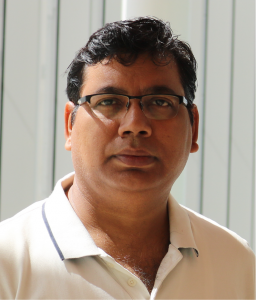Information Resilience as a Precondition to Build a Resilient Community: A New Research Paradigm
Virtually every society is evolving and every community is a highly complex and diverse system. Drivers of change are multifaceted, multilayered, and multidimensional. Communities must be adaptive to these collective forces of change. History attests that for the last few decades these forces were strengthened and made our society quite vulnerable and defenseless. Ongoing COVID 19 pandemics is one of them. The term ‘Resilience’ first introduced as a descriptive ecological term by C.S. Holling in 1973 in his seminal paper, after that has been frequently redefined and extended by heuristic, metaphorical, or normative dimensions. A resilient community can cope with external stresses and disturbances as a result of social, political, and environmental change. These disturbances could be anthropogenic or natural and the causes of these disturbances may be internal and external. Any crisis or adverse events in life demands resilience. Designing an effective policy for future community resilience must be facilitated and based on well-investigated transdisciplinary information research. The community’s coping capacity or capacity of response is called adaptive capacity. Adaptive governance described as one of the capacities of the system to self-organize, encouraged by diffusion of knowledge and experience penetrated through stakeholder’s network to meet a common understanding and policies (Folke et al, 2005). Bourdieu (1987) and Coleman (1988) first propounded the notion of ‘social capital’, demonstrated it is like the ‘glue’ that binds communities together, i.e. the networks of interaction between individuals and stakeholder groups that form a community. Social capital primarily deals with information that gradually shapes knowledge to develop trust, traditional and cultural adaptation, social network, social learning, and social memory in a community and drives it to adapt and shape change in the wake of sudden stress. Information resilience of a community is the ability to respond with immediacy on receiving sustainable, assured and trusted information to: 1. absorb the impacts of shocks and stressors, 2. adapt to changing circumstances, and 3. transform amid uncertainty. A deep understanding of information flow and its components with varying levels of impacts and influence cumulated as drivers in achieving community resilience is paramount. Scientific, technological, or social - solutions to such stress or crisis are always beyond the scope of a single discipline or area of research practice which can only be understood, managed, and confronted with the transdisciplinary investigation. The author proposes a new research paradigm in information science research structured with transdisciplinary approaches to provide answers to problems of community as complex systems in achieving resilience.
Presenter
 Dr. Sabuj Kumar Chaudhuri is an Associate Professor in the Department of Library & Information Science at the University of Calcutta, Kolkata and the recipient of prestigious Shastri Indo-Canadian Fellowship (2018-19) as Visiting Faculty in York University, Toronto, Canada worked on environmental information and socio-ecological resilience and CEU/HESP Research Excellence Fellowship (2017-2018) at the Centre for law, Ethics & Biomedicine (CELAB), the Central European University in Budapest, Hungary and worked on Patent on Medical Innovations. He was also selected twice in the Netherlands Fellowship Programme (NFP) in 2015 and 2017 in Maastricht University, the Netherlands and in Turkiye Scholarships for Postdoctoral Research in Ankara University in 2012. Sabuj did his PhD from Jadavpur University on the Impacts of IPR on Biodiversity and biotechnology in India from Jadavpur University as JRF (UGC) and a Gold Medalist in M.Sc in Marine Science from the University of Calcutta and Associateship in Information Science (AIS) from the National Institute of Science Communication and Information Resources (NISCAIR), CSIR, New Delhi with the specialization in Patent Information System. He has been teaching and supervising M.Phil and Ph.D on futuristic research agendas for several years on IPR, Traditional cultural expressions and indigenous knowledge system in addition with his other two core research areas Sustainable Development & Resilience. He has written numerous research articles, book chapters published in national and international journals on IPR.
Dr. Sabuj Kumar Chaudhuri is an Associate Professor in the Department of Library & Information Science at the University of Calcutta, Kolkata and the recipient of prestigious Shastri Indo-Canadian Fellowship (2018-19) as Visiting Faculty in York University, Toronto, Canada worked on environmental information and socio-ecological resilience and CEU/HESP Research Excellence Fellowship (2017-2018) at the Centre for law, Ethics & Biomedicine (CELAB), the Central European University in Budapest, Hungary and worked on Patent on Medical Innovations. He was also selected twice in the Netherlands Fellowship Programme (NFP) in 2015 and 2017 in Maastricht University, the Netherlands and in Turkiye Scholarships for Postdoctoral Research in Ankara University in 2012. Sabuj did his PhD from Jadavpur University on the Impacts of IPR on Biodiversity and biotechnology in India from Jadavpur University as JRF (UGC) and a Gold Medalist in M.Sc in Marine Science from the University of Calcutta and Associateship in Information Science (AIS) from the National Institute of Science Communication and Information Resources (NISCAIR), CSIR, New Delhi with the specialization in Patent Information System. He has been teaching and supervising M.Phil and Ph.D on futuristic research agendas for several years on IPR, Traditional cultural expressions and indigenous knowledge system in addition with his other two core research areas Sustainable Development & Resilience. He has written numerous research articles, book chapters published in national and international journals on IPR.
